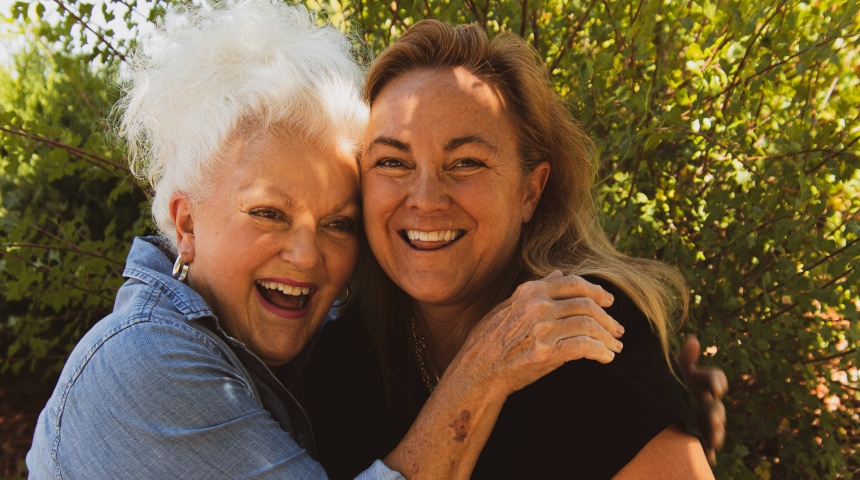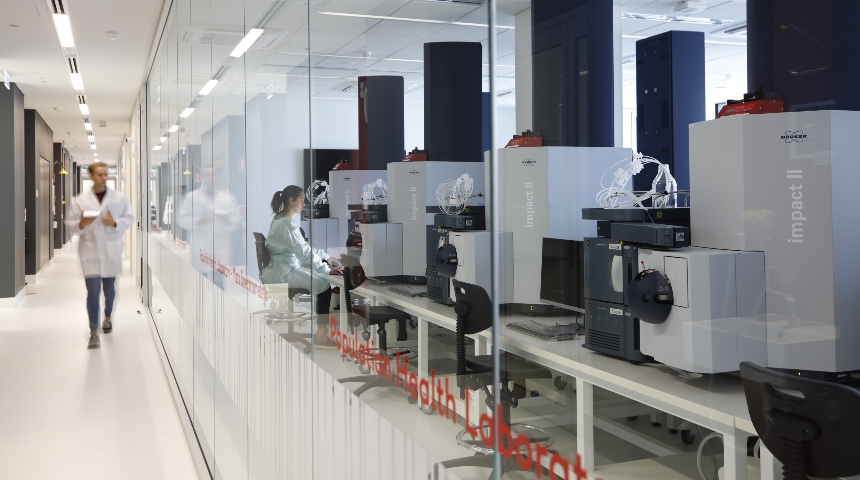
Scientists are studying the ageing brain to unravel the mysterious decline caused by dementia in a bid to beat this debilitating disease.
Every three seconds someone in the world develops dementia.
This poorly understood disease is now the second leading cause of death of Australians. Among women, it’s the leading cause, responsible for 11% of deaths each year.The physical, emotional and economic cost is tremendous with very few lives not touched by dementia. Today, scientists at the Health Futures Institute are working hard to understand exactly how the diseases takes hold and what can be done to arrest it.
“We want to understand why it is that some people age healthily for over 100 years and other people are susceptible to different diseases as they get into their 50s and 60s,” said Dr Luke Whiley, Senior Lecturer in Phenomics at the Australian National Phenome Centre (ANPC).
“For diseases of old age, it’s not necessarily about curing or preventing the disease, but if you can delay it by ten or twenty years then you can potentially shift the symptoms beyond a person’s lifetime to improve their quality of life as they get older.”
Dementia occurs when there is a build-up of protein on the brain which causes a slow decline in brain function over the years.
However, while a pathologist knows what to look for, we still don’t have a single confirmed theory as to why those proteins build up and why they cause cognitive decline. That highlights how little is known about these diseases.
Identifying those at greatest risk
“We know that there are specific genetic risk factors for diseases, said Dr Whiley.
“What we don’t always know is what that genetic risk does under the surface, so we use phenomics – how the environment and a person's lifestyle interact with their genes - to uncover the pathways and mechanisms that make people susceptible to disease.”
Dr Whiley and his team are trying to measure the changes in our system that lead to dementia.
“Right now, we’re investigating some lipids that we’ve found – which are the fats in our bodies – that are higher in the general population of middle-aged people that carry specific genes with Alzheimer’s disease.
“So, we’re asking whether this family of lipids has a role in the cycle of dementia.”
 Image caption: Researchers at the Population Health Laboratory of the Australian National Phenome Centre
Image caption: Researchers at the Population Health Laboratory of the Australian National Phenome Centre
If they can find patterns in middle age that affect the course of cognition in old age, work can be done to address them and change that life course.
“We will track those lipids over time and detail exactly what the mechanism is, with the long-term goal of modifying the pathway to treat or slow the disease.”
While Dr Whiley’s primary research is on understanding the underlying mechanisms of dementia with view to influencing the course of the disease, there are also interventions that are making a difference to those already living with dementia.
Research shows that lifestyle changes around diet and exercise make people less likely to be impacted by dementia.
Where the lab meets the clinic
The ANPC is currently collaborating with Dr Belinda Brown at the Centre for Healthy Ageing to investigate how mid-life interventions can improve people’s cognitive outcomes.
“Previous research has failed to consistently demonstrate a positive link between exercise and cognition, and this could be due to individual differences in brain changes following exercise,” said Dr Brown.
“So, we worked with a team who evaluated the impact of high-intensity exercise on cognitive function and brain volume from MRI scans.”
The research found those individuals that had the greatest increases in fitness following the high-intensity exercise intervention had the biggest improvements in cognition. It also found that some genetic factors are important for predicting which individuals experience brain changes in response to high-intensity exercise.
Our work suggests that an individualised approach to exercise programming may be important for improving brain health.”Dr Whiley is now undertaking phenomic analysis to complement the clinical data of that study.
Dr Belinda Brown
“Through this we will see if there are any metabolic pathways that associate with the clinical outcomes they’re seeing,” he explained.
“This is an example of how we’re working with the intervention research to understand the molecular pathways that might lead to other therapies.”
“If we can understand these pathways, they can inform the development of therapeutics, and the work with Belinda is a gateway to that.”
Although extensive research has been undertaken to understand the metabolic changes associated with brain ageing and exercise independently, the metabolic processes linking exercise to better brain health have not been investigated.
“Our collaboration with ANPC will result in world first research identifying the metabolomic changes that underlie the relationship between exercise and brain health in older adults,” said Dr Brown.
“We’re now working toward developing individualised exercise programs for dementia prevention targeted toward individuals we know are at the greatest risk.
“This type of precision medicine would be the first of its kind in relation to exercise and brain health.”
Changing how we think about dementia
There’s an acceptance in the general population that dementia is just part of old age – but that’s not really the case. It is a disease and so it shouldn’t happen in a normal ageing process. An abnormality is causing the loss of cognition.
“This isn’t something that goes hand in hand with getting older – it’s a disease process that happens,” explained Dr Whiley.
If we think about it as a disease, there’s hope that we can one day treat it rather than accept it as a natural part of ageing.”Dr Whiley got involved in dementia research via a PhD project on Alzheimer’s, which coincided with his grandfather’s diagnosis with dementia. Everything merged at that point and helping progress our understanding and treatment of the disease has remained his focus.
Dr Luke Whiley
“If you can do one thing, a good study or investigation that uncovers something, you don’t know what global cascade of research you will set off,” said Dr Whiley.
“That’s what really motivates me, alongside my personal connection with the disease through my grandfather.”
This research supports the United Nations Sustainable Development Goal 3 to ensure healthy lives and promote well-being for all at all ages.
